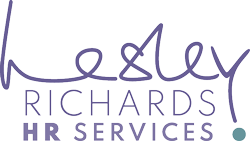I’ve wondered about this for some time. Why are some of the most devastating natural occurrences named after people?!
Remember Storm Dennis in early 2020? He wreaked havoc across the whole country, causing widespread damage to thousands of people. Then along came Storm Ellen in the summer, compounding the disruption. And now I’m sitting here as Storm Fleur approaches, 400 miles wide, bringing winds of up to 60mph.
Dennis was my friend’s Dad. A real gentleman, but with a twinkle in his eye, delighting in the achievements of his four doting grandchildren, and, in his latter years, winner of the coveted Church Victoria sponge bake-off!
Ellen was the sweetest Finance Assistant I ever hired – recently moved back to Wales ahead of her planned retirement, enjoying her last few months of work, unofficial agony aunt to younger colleagues, and regularly bringing in freshly baked bara brith.
And as for Fleur… okay – I accept – you DO need to brace yourself for this one! One of my dearest friends, and founder member of our friendship group, an absolute whirlwind, and guaranteed to make you laugh, in good times and bad.
In the same way that we give names to animate and inanimate objects (think pets, boats, or even Alexa!), are we less likely to take notice – and appropriate action – if we have a “cosy” connection to a storm?
It got me thinking of comparisons to unconscious bias (which ACAS broadly defines as how our beliefs and views about other people can depend on our life experiences), proximity bias (where preferential treatment may be unintentionally given to those in our immediate vicinity), or plain old favouritism – none of which are either right or reasonable.
As hybrid working becomes the longer-term norm, the issue of fair and just working practices is yet another minefield, with potentially far-reaching consequences including the impact on mental health, discrimination and/or constructive dismissal claims.
How do we break down remote workers’ concerns that being away from the office and inevitably having less exposure to their manager somehow prevents them from demonstrating their commitment to the job, team and organisation, leading to them being overlooked for recognition or promotion? Will this result in remote workers feeling that they have to put in extra hours to prove their worth, resulting in stress and potential burnout?
Here are just three ways that we can combat any disadvantage (real or perceived) faced by remote workers:
Communication is key – it’s important to schedule regular catch-ups to ensure that people who aren’t in the office aren’t excluded. It’s also worth scheduling in a few minutes either side of the meeting for small talk amongst colleagues.
Process and policies for promotion or award pay rises/bonuses need to be fair and objective to eliminate “rapport” coming into play.
Ensure that your organisation’s culture encourages transparency and openness, so that those who are not in the building with you are able to confidently and comfortably speak up when they’re feeling isolated.
So – back to those storms…
Until the late 1970s, storms were generally given female names – mainly because male scientists were naming them after wives or girlfriends. They are now alternating with male names bringing with it (so the history books say!) a trend towards naming them after people they dislike or even vendettas!
The Met Office receives thousands of naming requests each year. Who are you going to nominate?
